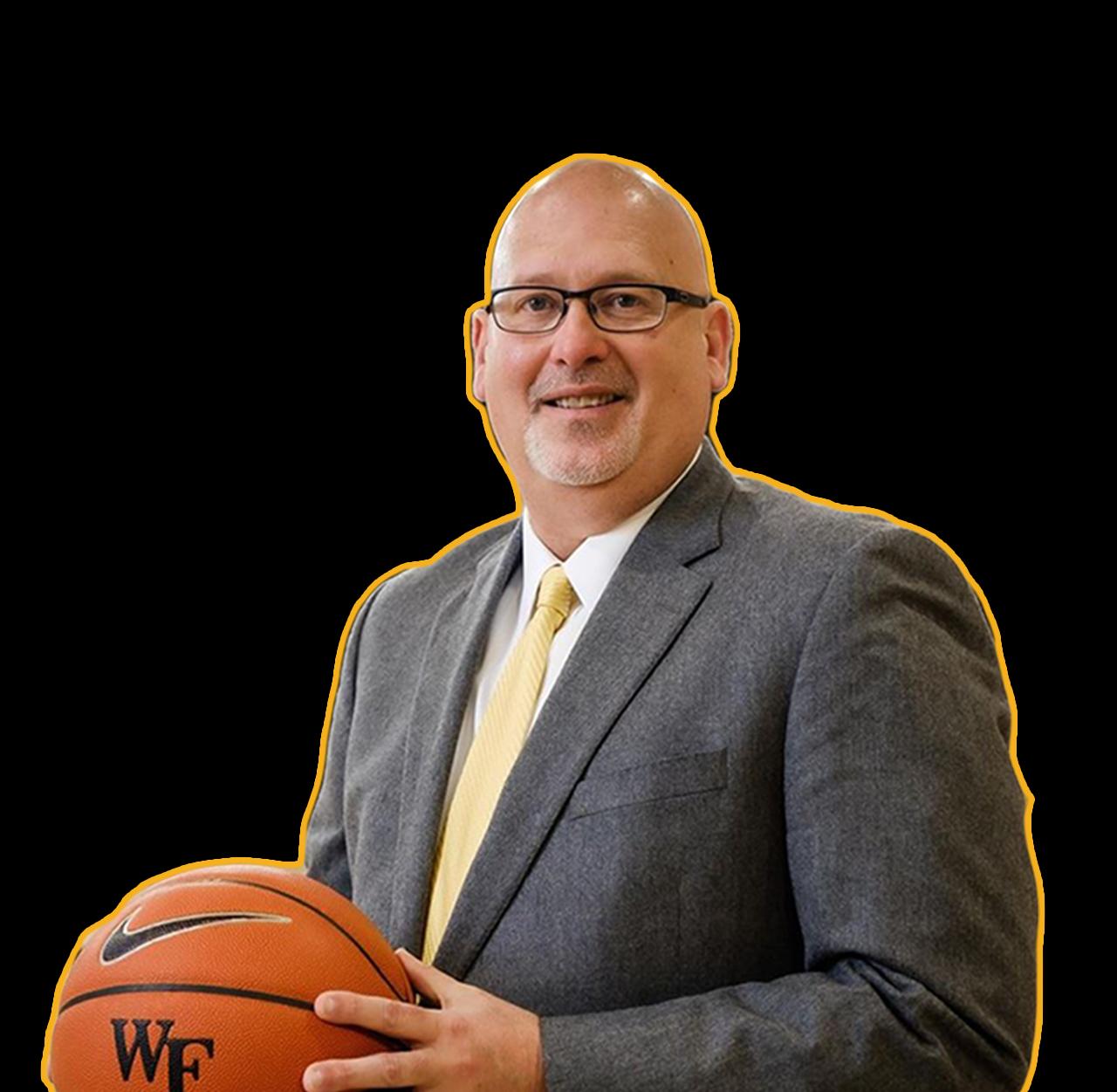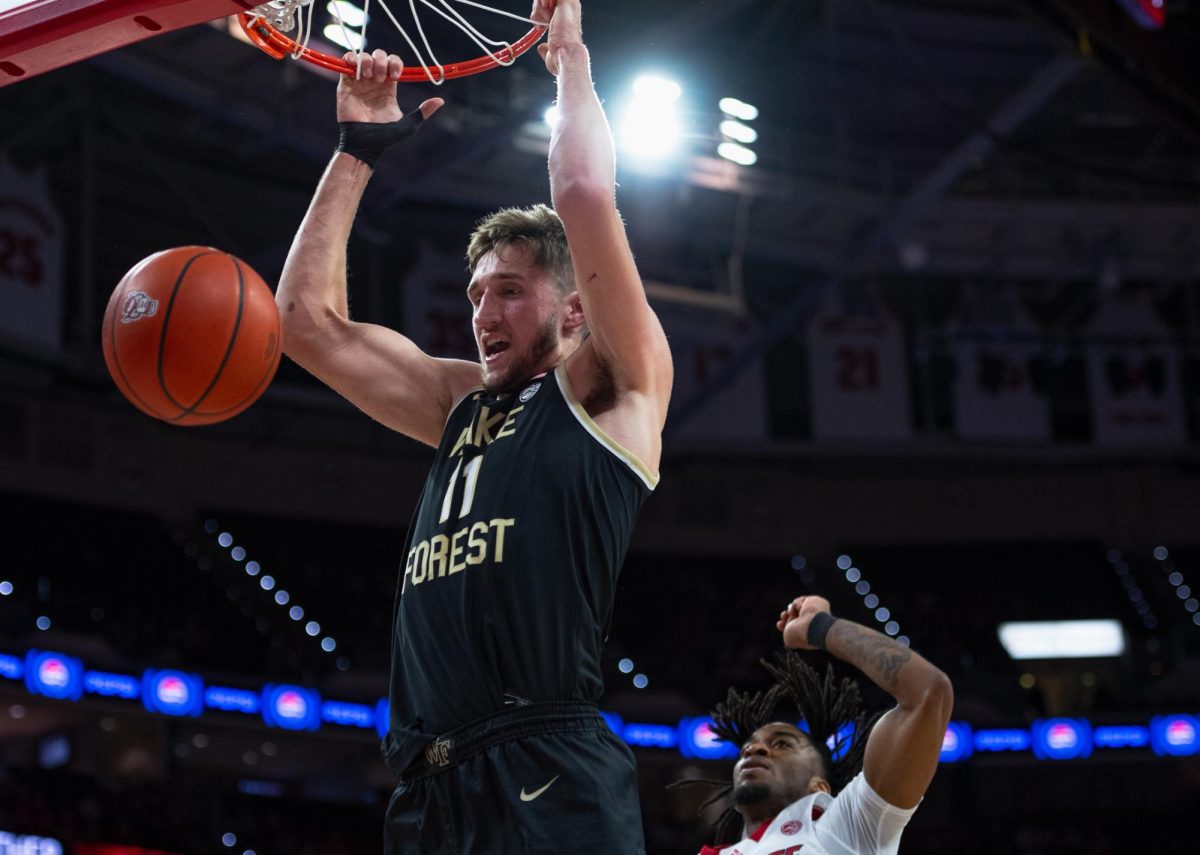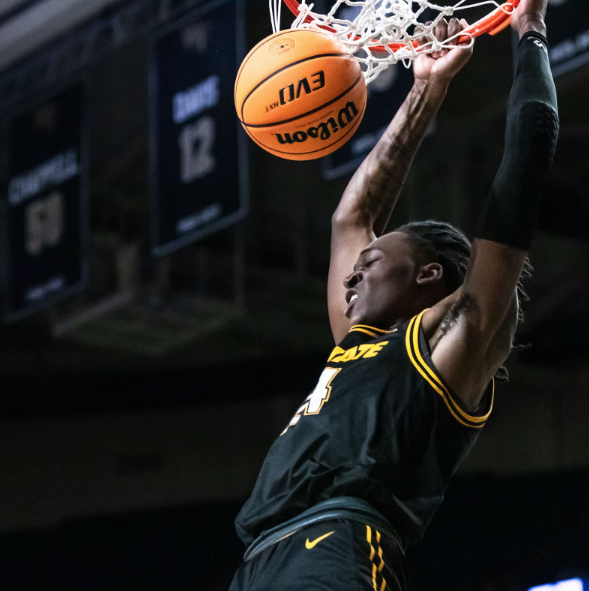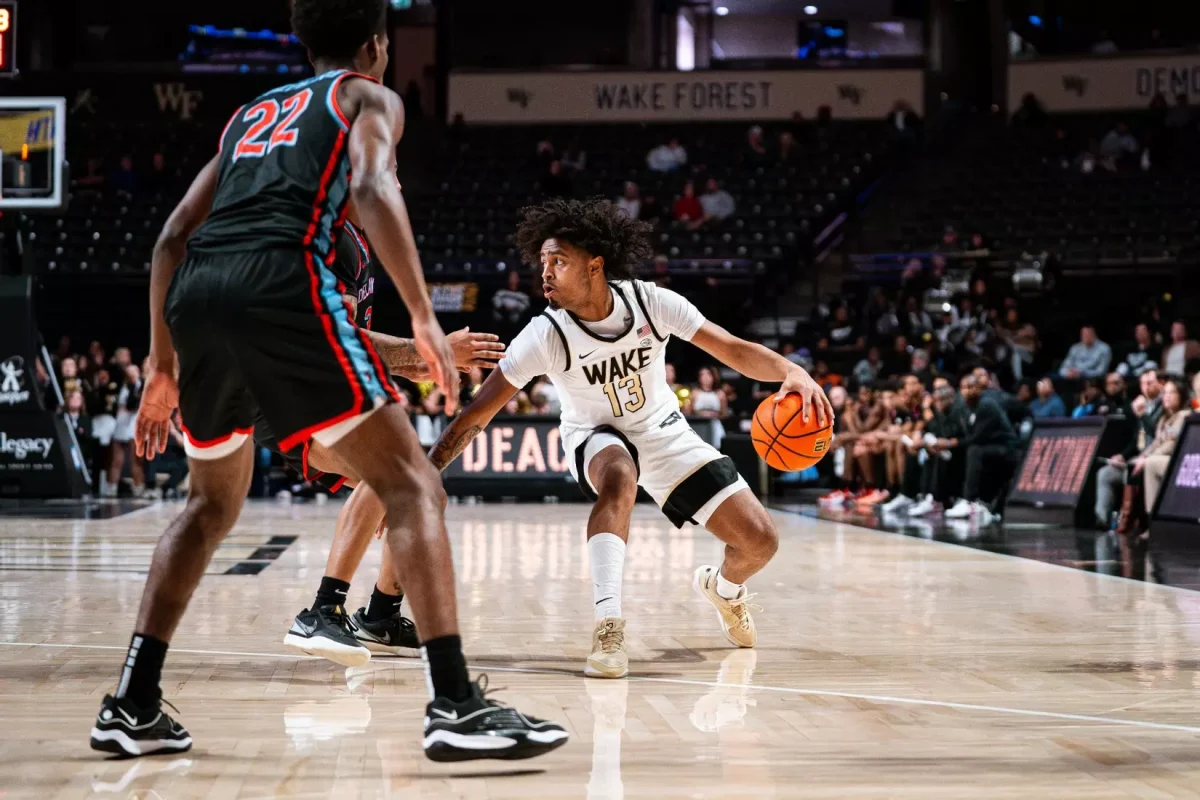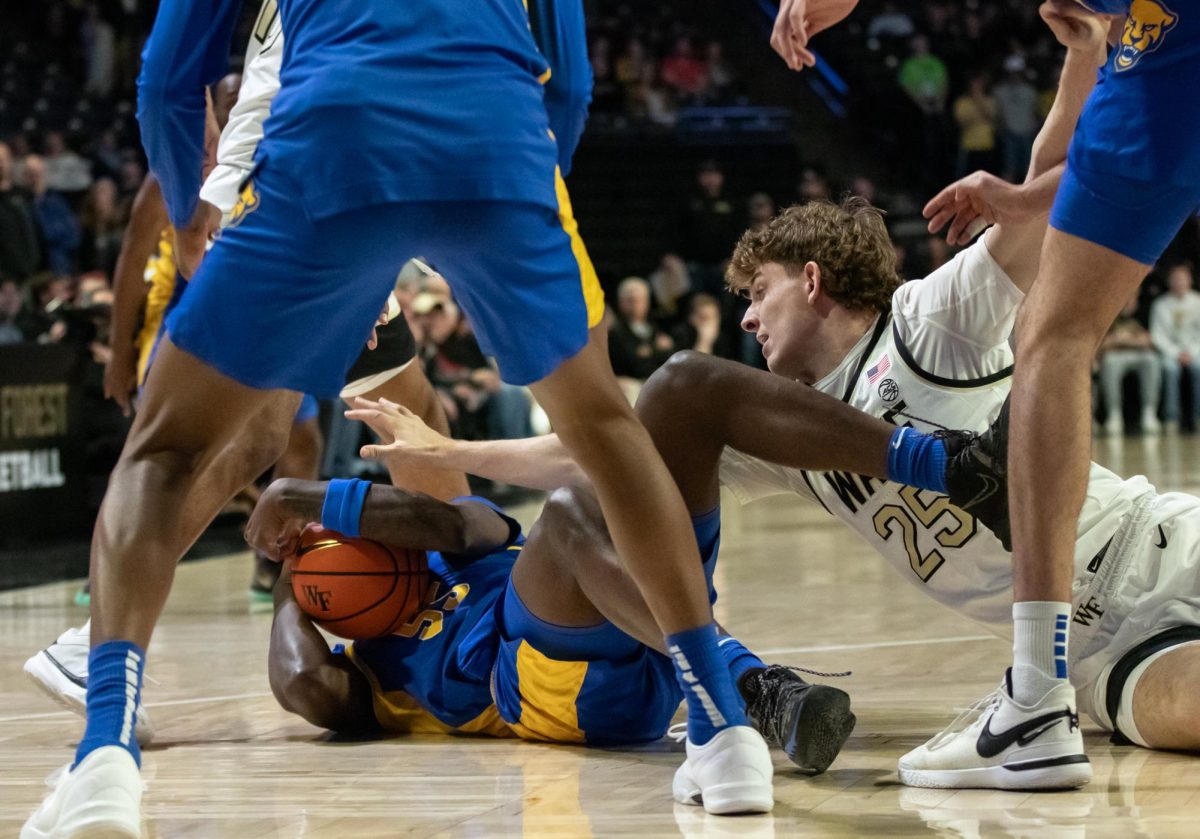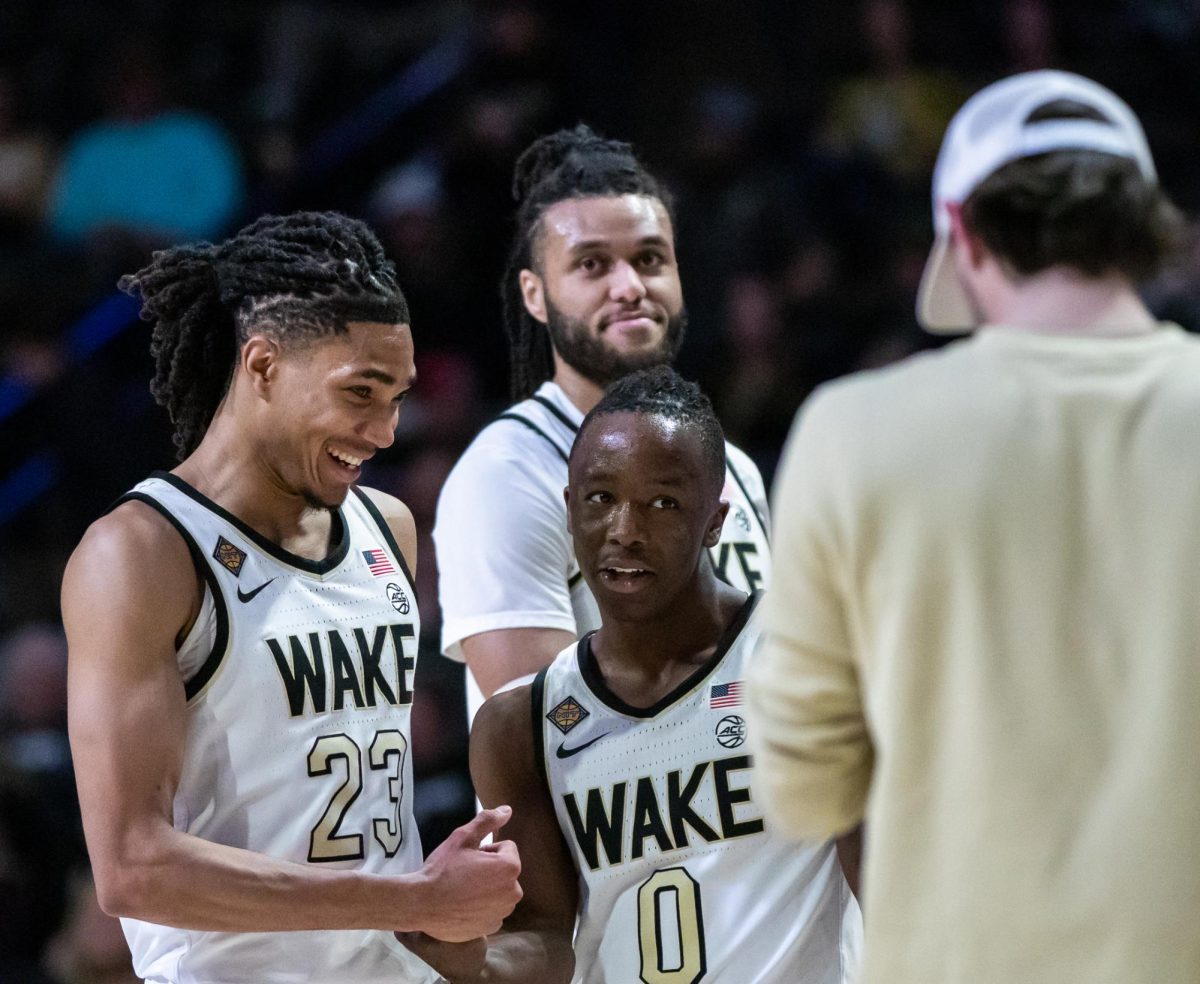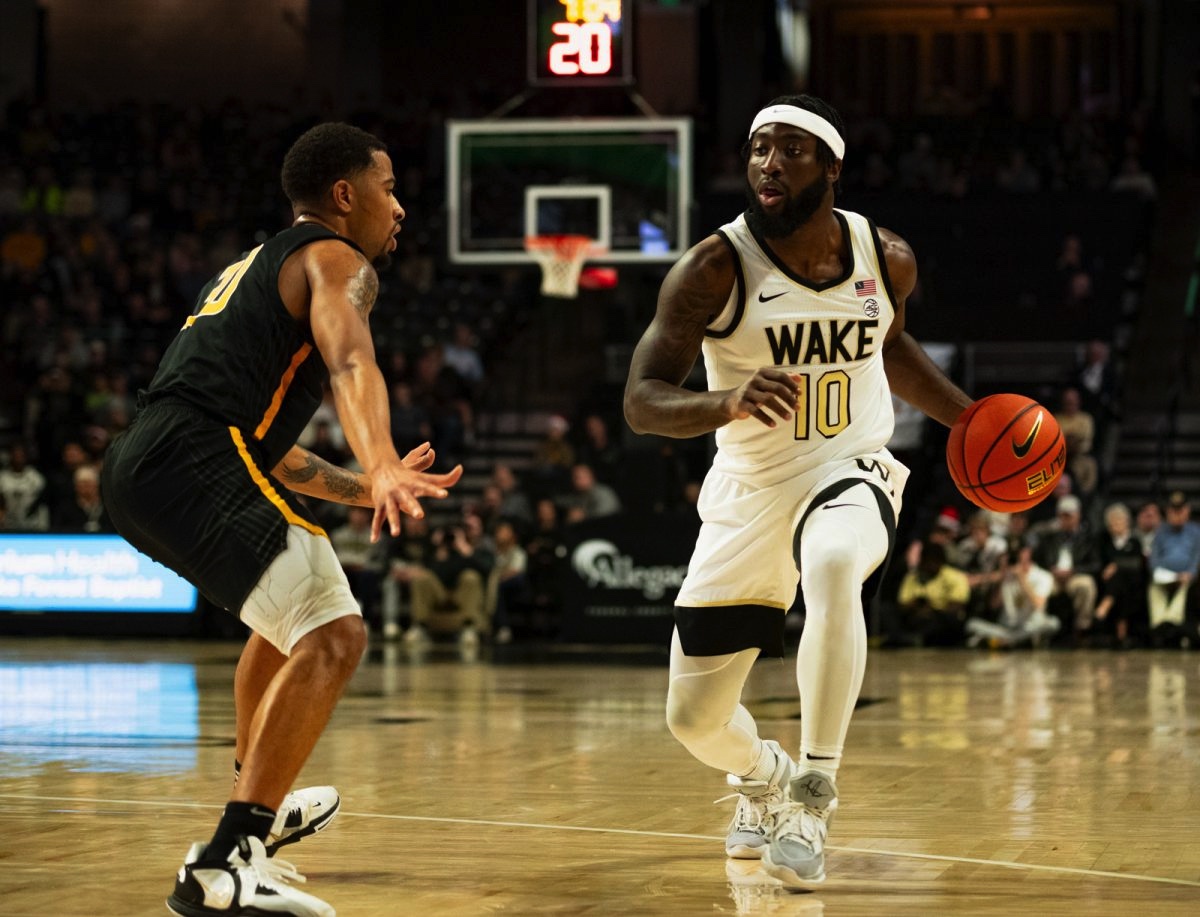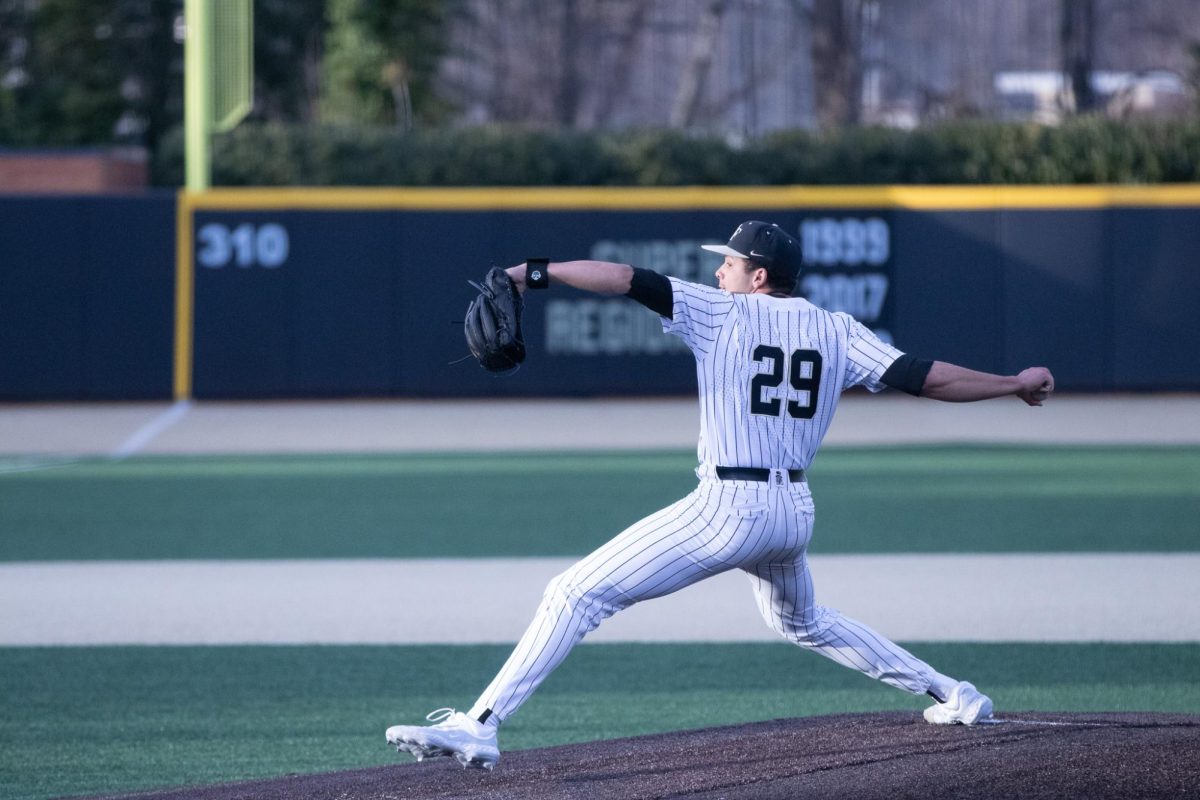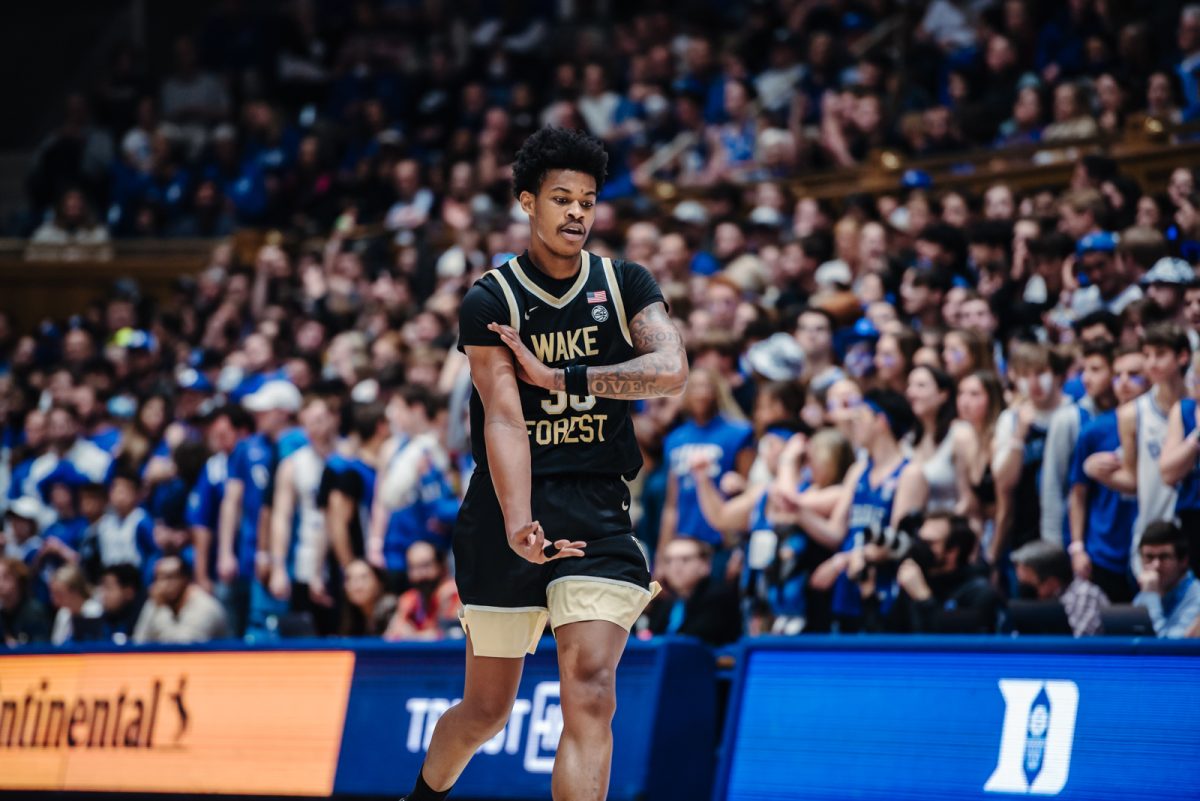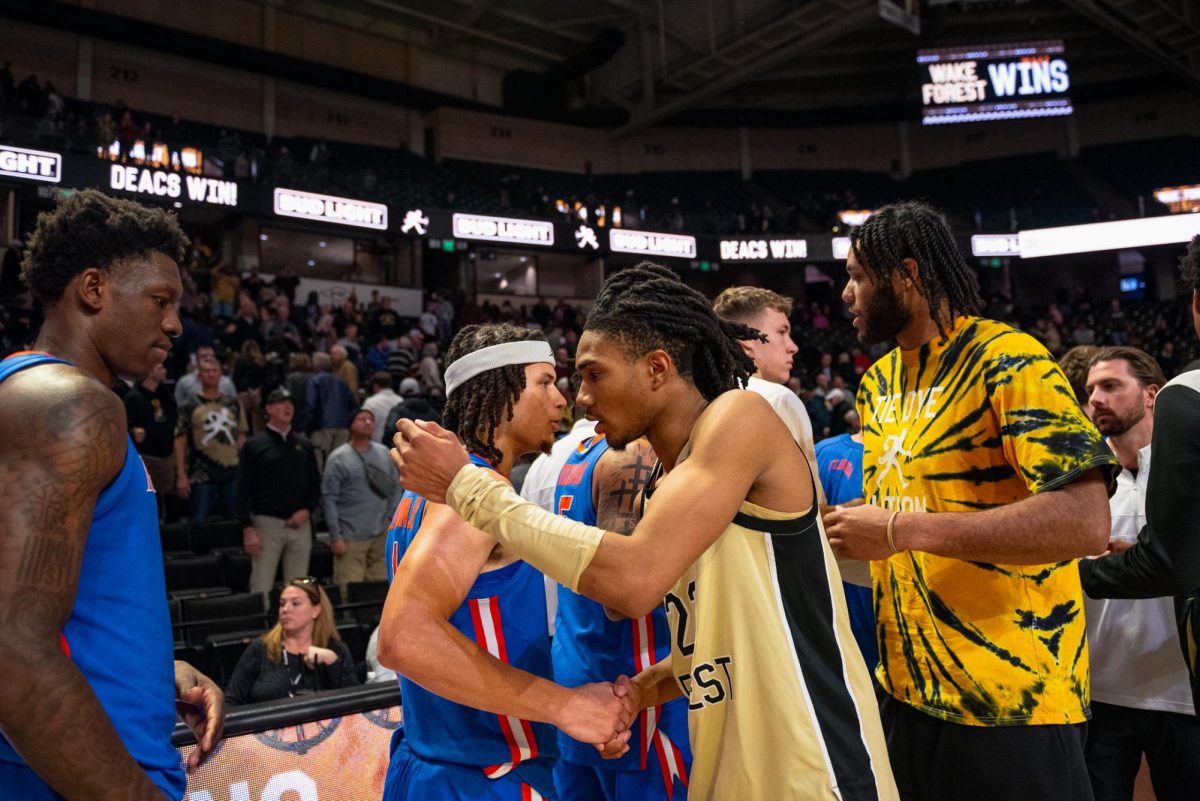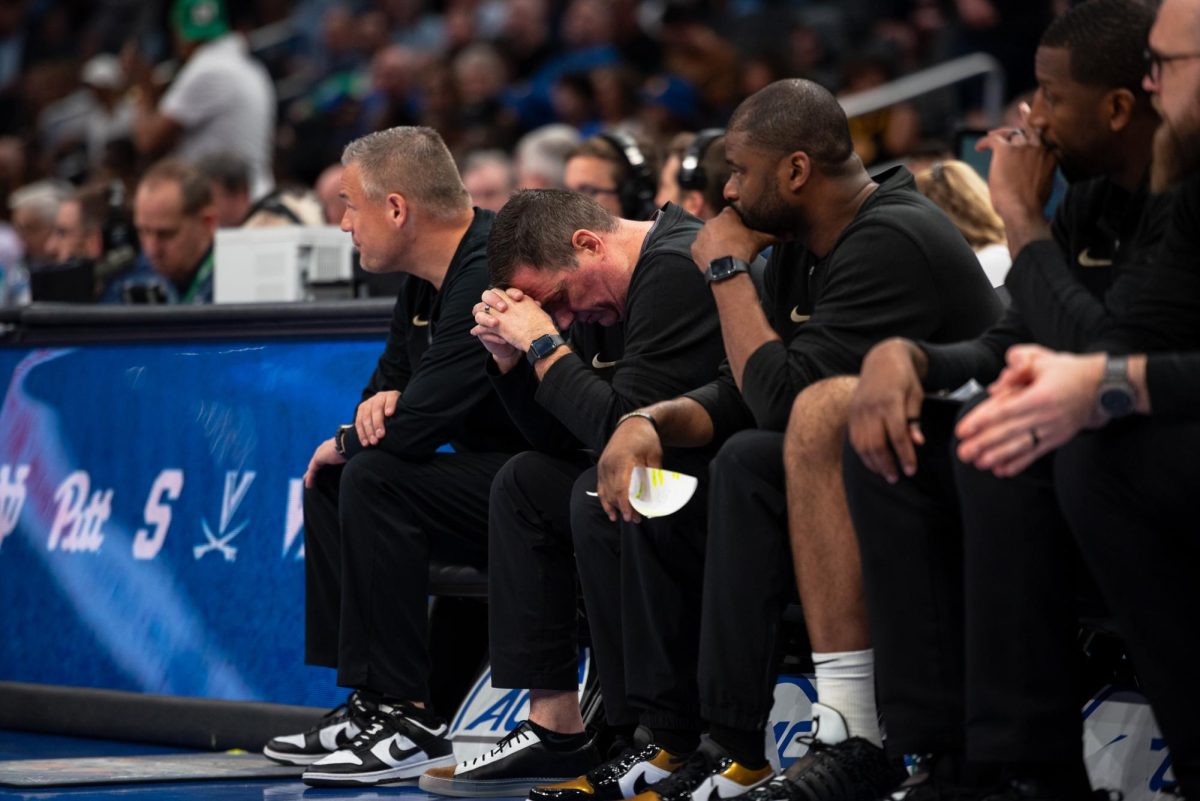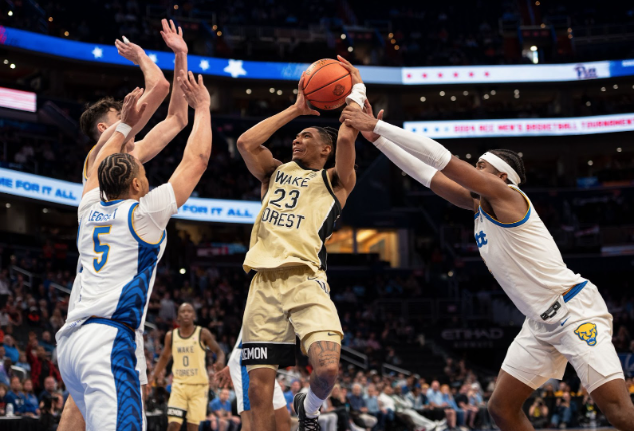Earlier this week, Sports Editors Ben Conroy and Will Zimmerman sat down with Head Basketball Coach Steve Forbes.
During their conversation, which took place over Zoom, Forbes discussed how the coaching transition has been changed due to the global pandemic, what he values in a strong team and how his life path has been leading up to this moment since high school.
Before taking on this position at Wake Forest, Forbes was the head coach at East Tennessee State University (ESTU). During the 2019-2020 season, he touted a 30-4 record.
Will Zimmerman: Hi, my name’s Willis Zimmerman, and I’m here with my assistant editor, Ben Conroy. And we are here to talk to [Steve] Forbes today, the newly hired basketball coach. So, first of all, Coach Forbes, thank you so much for making the time with me to meet with us today. I think I speak for a lot of Wake Forest when I say we’re super excited to have you, we’re ready for the reinvigoration of the basketball program.
I’ll hand it over to Ben for our first question.
Ben Conroy: All right. So, first question: how are you and your family adjusting to the current COVID-19 outbreak? Do you have plans to relocate in a more permanent capacity to Winston-Salem anytime soon, and how has this process been affected by what’s going on right now?
Steve Forbes: Well, it’s obviously affected the way we live and, you know, being a coach. When I was at ETSU, I couldn’t even go into the office or go on campus probably for the last five or six weeks. Now, my wife’s an educator. She teaches elementary school, so she was home.
And my son, Jonathan, who is the youngest, he’s a sophomore and he’s been home. And then my oldest, Christopher, just finished his master’s and my daughter Elizabeth is working on her PhD at ETSU, so they live in a house in town. So, it’s really kind of just been our family unit, you know, and I hadn’t seen my staff until this job came open.
I hadn’t seen my ETSU staff for probably five or six weeks. So, we’ve basically just been at home with the change. You know, it’s been interesting. The one thing that has helped me personally is Johnson City to Winston-Salem is only about three hours. And so, my wife and my children have been able to come down here and look at houses.
They’re out looking today actually. And I’ve been able to go home once on the weekend and I think that’s probably what I’ll continue to do until things open back up; I’ll be here during the week in the office, practicing social distancing and wearing my mask during the pandemic.
And then going home on the weekends, to see my family. So, it’s been difficult, but really the distance has probably helped me a little bit as far as the moves being made.
Conroy: Okay. Yeah, it’s definitely an interesting time for everybody, so it’s good to know that you’ve been able to adjust well. Second question: your coaching career has been long and storied and there have been a great many stops along the way. How would you describe your journey from coaching at the community college level at the beginning of your career to holding positions in premier conferences such as the Southern conference, the SEC and now the ACC with Wake Forest?
Forbes: Yeah. You know, guys, it’s really probably a path less traveled. Most people, probably, this is not the path that they take, but it was my path and I wouldn’t trade it for anything. One of the quotes I always like to say is, “the road to success is always under construction.”
My road to success has been a road that has weaved, went up and down a mountain, you know, now to the top. I think it’s made me who I am, starting back in junior college and the late 80s in ’89, and then all the way to now being a head coach in the ACC.
That variance has been invaluable for me, and I’ve also had the opportunity to work under great coaches. Greg Marshall at Wichita State and Bruce Pearl at Tennessee and Billy Gillispie at Texas A&M. Porter Moser was a Final Four coach who was at Loyola, and I worked under him at Illinois State.
And then having a chance to be a head coach at the junior college level and the division one level and learning on my feet. You know, part of learning is learning what not to do, right? But part of learning is by trial and error. So, I’ve had all these experiences that I can draw back on now as I head into the ACC.
You’ve probably heard me say this before, I don’t know, but a lot of times in life we want to hit a single, well, and we want to land on third, right? Can’t do that. You know, you gotta work your way around the bases. And so, I’ve been able to work my way up. I played baseball in college, so, you know, I worked my way around the bases to get here, and I think all that experience is going to really pay off.
Zimmerman: That’s awesome. Obviously a lot of great coaches you’ve worked under, and I’m sure you’ve gained a lot in that way. So, kind of going off of that, do you see a difference between coaching in mid major conferences and coaching the ACC?
Forbes: Yeah, I think it’s the level of player and then the level of coaching. I mean, there are some great coaches in the SoCon [Southern Conference].
Mike Young is in the ACC now at Virginia Tech. He was in the league with me a year ago. Wes Miller at UNC Greensboro. Bob Richie at Furman. Greg Gary, the tremendous coach of Mercer, on and on. But now we’re talking about hall of fame coaches, you know, and not that those guys maybe someday won’t be.
But now we have established hall of fame coaches in the ACC. We also have tremendous players. The best. They’re the best in the country, the best in the world, high school or whoever’s on their team. And so, I do think that part has stepped up. I do think coaching is coaching. I do think basketball is basketball, the game is the game.
It’s not going to change fundamentally because you went to the ACC. It’s just going to be played at a much higher level, and so the coaches are going to make less mistakes. You have to really be sharp and prepared. And then you have to have really good players. Because I’ve learned a long time ago, guys, really good players make really good coaches and I’ve always believed in that.
And so, we’ve got to go out and try to get the very best student athletes that we can get here at Wake Forest.
Zimmerman: So, you were at ETSU for five years and kind of built each year on the previous year and did better and better each year, played postseason basketball a few times and won 30 games your last season, which is all very, very impressive. So, does that sustained success make the decision to come to Wake Forest even more difficult?
Forbes: It’s always difficult to leave something that you love, you know? It was hard for me to leave my parents when I went to college, you know, I love them.
I love ETSU and I always will. And it’s always special when you build something right from the bottom, and you reach the most wins in school history, right? And so, you have these great relationships with your players, with the people that you work with and the community. So that part, yes, that part was hard. But it didn’t overcome the opportunity. And I saw there were so many positives with Wake [Forest].
Okay, the first thing is ACC, right? It’s the best league, historically, in college basketball. You have this world-class, top 30 education in the country, right? Great recruiting tool, to get great players who want to get a great degree. And then the third thing is this tremendous basketball complex, Shah basketball complex. It’s world-class. And so as hard as it was for me to leave, the challenge of bringing, just like the challenge was at ETSU when I got there. There was tradition there, they just needed a little spark, right? And that’s what Wake [Forest] needs. It needs to wake up, for lack of a better term. And so, maybe we’ll put that on a t-shirt, right? “Wake Up.” And so, I saw those as great challenges in a great place. We all strive to be at the top of our profession and in the college level coaching in the ACC.
From a small town in Iowa, graduating with 32 people to being the head coach in the ACC. Why not? Let’s go, let’s take the challenge.
Conroy: Yeah. So, you kind of touched on a couple of things that drew you to Wake Forest, the basketball complex and the ACC conference. But what were some of the other most compelling aspects about the job for you?
Forbes: Well, my relationship with [Athletic Director] John Currie. John and I have known each other since I was at Tennessee 15 years ago. He’s somebody that I had a ton of respect for and somebody that I have built a relationship with over time. And listen, guys, when you’re getting ready to leave something that’s really good, you want to make sure that you’re going to go work with people that you trust. Right? And I totally trust John because I’ve had experience working side by side with him in Tennessee and being successful. And so that was big. Just visiting with [Football Coach] Dave Clawson and [Dean of the School of Divinity] Jonathan Walton and [Vice President of Enrollment] Eric Maguire in admissions, [Dean of the School of Law] Jane Aiken, all these people.
The more I talked to them, the more interested I became because they sounded like they’re all on the same page and they had a synergy for themselves that I felt like I wanted to be a part of. And so those things were really important for me, okay, because as much as Wake [Forest] was looking for a fit, I’m looking for the same thing, right? And they have to coexist. And I thought that, and I just felt like they did.
Conroy: Yeah. When we spoke with Currie, he had a lot of good things to say about your relationship and your time together. So, what are the first things that a head coach has to do after accepting the new job, and how has this process sort of been affected by social distancing and the global health crisis that’s going on right now?
Forbes: Yes, yes. Say a big prayer. The number one thing, and I just basically kind of finished it up, is that I had to re-recruit the team, right? That was the most important thing, to have to recruit the guys that were already in the program, and many, many, many of them had already put their name in the transfer portal.
In fact, I think the day of my press conference, we had maybe two guys on the team. Okay. I’m not really good at math, but it’s hard to play five on two and it’s pretty hard to have practice with two guys. So, I spent my entire time up until this weekend re-recruiting our current players and the pandemic affects that.
How? Well I can’t meet them face to face. I can’t work them out. I can’t have them in the office to talk to them. I can’t go to lunch with them. I can’t build a relationship. I can’t really, how do you build a real relationship over the phone? Over Zoom? But that’s, that’s what it is, right? So, I had to do it, and so I spent 22 out of the 24 hours in the day on the phone.
Okay. And now we’re to nine. Okay. Now we can play baseball. Right? So, we can take infield, take outfield. So, we’ve got four left, but that was the most important thing for me, was re-recruiting the current roster. Of course, you know, then there’s reaching out to donors, reaching out to former players, all those things take time, but I had to really prioritize what was the most important thing, and that was the players. And that’s what we’ve done up until basically this week. And now we can work on filling the four remaining scholarships and start working on, obviously, filling the next two classes.
Zimmerman: So, one of the players, I’m sure you’ve talked to over the past couple of days, was rising sophomore guard Jahcobi Neath and he announced that he’s going to return to Wake Forest. How important do you see it to have a player with such a rare combination of youth and experience to return to this team? And what does that say about other players returning?
Forbes: Well, I think, you know, they’re all important in their own way, okay. They all have their own unique talent and their own unique ability and they’re all good guys.
I really have enjoyed getting to know them. I think Jahcobi, specifically, gives us experience in the back court, right? A guy that played in the ACC a year ago, especially at the end of the year, had a lot of success. My conversations with Jahcobi is, I think he’s competitive and those kinds of guys really do well for me.
I think he wants to win. I think he wants to work and get better, and I want those kinds of guys in our program. And so, I think his work ethic, his personality will be infectious to other people. And then I think that’s when he started adding something special. But I think they all have their own unique contributions, you know, and that’s what part of being on a team is, putting a puzzle together, right? You can’t have all the same pieces. The puzzle doesn’t fit. And so, I liked the pieces. Now we all have got to add, three or four more to really give us a chance to be competitive in our first year.
Conroy: Okay, so building off that question: with the current global situation, outside of recruiting, how have the preparations for the upcoming season been affected and do you think that there will be any format changes to the league once the season begins in the winter?
Forbes: I mean, I don’t think we know as far as format. Obviously, people are discussing it, but I think it all starts back when we can start school, when can students be on campus, or does football go, you know, are they playing? Obviously we’re after them. I don’t know. I mean, it would be frivolous for me to guess. I don’t know. Today if you asked me, you know, my opinion, I’d probably say, I don’t know if we’re going to start on time. We have a better chance because obviously we’re a little later, right? So, we’ll see. But it has really affected us as far as, you know, building our program. As far as you know, I can’t go work out our guys.
Like right now, in the summer we should get eight weeks, right? Practice, weights, academics, we don’t get any of that. So that’s going to hurt, especially a new program. You know, it’d be one thing if I’d been here, you know, five, 10 years and had eight guys back and understood the system and all that.
You know, it maybe wouldn’t be as bad, but for the situation that we’re in, it’s devastating right now to not be able to have them here and work with them and help them get better and understand what our vision is for the program.
Conroy: Yeah. Do you have any tentative return plans for getting people together in person, or is it still all just up in the air right now?
Forbes: I think it’s something, I mean, there’s really nothing we can do until the rules change. The NCAA has, right now, the recruiting dead period which has been proposed to go all the way until July 31 and if we can’t be out recruiting and we can’t be around people, surely we’re not gonna be able to be around our own players.
I don’t know, that could change. It’s kind of day-to-day, you know, that’s kind of how it went. Guys, when I was at East Tennessee State, we won the tournament, punched our ticket to the NCAA tournament on a Monday, right? Tuesday, we took off. Wednesday we were taking off and that night the NBA canceled the season.
Thursday, I have a meeting with my team telling them, you know, we’re either gonna play it next week, move it back or not play it. And when I walked out of the meeting, they canceled the tournament. So, it was like, I don’t know. It’s moving fast and until we get more information, I just don’t really think I know what’s going to happen.
Editor’s Note: This interview has been edited for clarity, grammar and AP Style.

